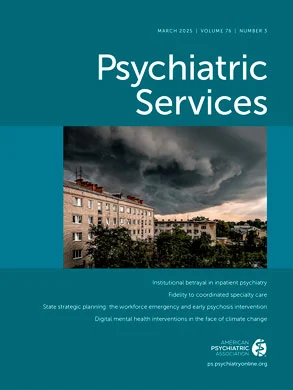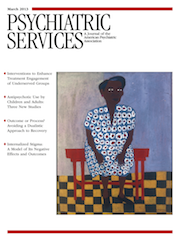Complex medical comorbidity is an increasingly important concern in inpatient psychiatric care. This should not be surprising, because patients with psychiatric disorders have higher medical comorbidity and mortality rates than the general population. The presence of comorbid conditions, either psychiatric or medical, complicates patient care, in that general medical problems can lead to or exacerbate psychiatric symptoms and vice versa. Individuals with chronic mental illness are at particularly high mortality risk, with their lives shortened by up to 25 years, according to some estimates.
Patients with chronic mental illness face formidable difficulties in accessing care; they frequently become embedded in a cycle of high service utilization. Although funding agencies worry that concurrent management of general medical and physical and psychiatric conditions will be more costly than standard care, evidence shows that concurrent management of general medical issues by an internist during psychiatric hospitalization can be cost-effective, improve patient outcomes, and increase patient satisfaction.
With these considerations in mind, our inpatient psychiatric facility implemented a concurrent care medical consultation service. As in the medical home model, the patient is central to the plan of care, and the success of treatment depends on appropriate consultation of the medical service and ongoing communication between the psychiatrist and internist.
Our facility is a 170-bed, freestanding, private nonprofit psychiatric hospital that serves as the major psychiatry teaching site for our medical school. It is the major inpatient psychiatric facility for Rhode Island and southeastern Massachusetts, with approximately 7,200 annual admissions. Before implementation of the concurrent care model, patients were seen by internal medicine physicians on an as-needed basis, in response to a formal consultation request by the attending psychiatrist. Specific consultation questions were addressed, with recommendations executed by the psychiatrist. Subsequent formal involvement of the internist required repeated consultation requests. Although this model was adequate for physically healthy patients with discrete medical problems, its limitations became increasingly evident as the number of patients with acute or complex medical comorbidities increased.
In the new concurrent care model, the internist receives an initial consultation request and, if specifically requested by the psychiatrist, continues to see the patient on a daily basis as a coattending physician for managing serious acute illness or multiple complicated chronic medical issues. The model was designed to facilitate treatment of the whole patient and to expedite implementation of interventions for active general medical issues and neglected chronic medical conditions.
After the model’s implementation in 2006, we surveyed physicians to evaluate their perceptions of its accessibility, extent of utilization, perceived benefit, and perceived improvement to care. Most items focused on the psychiatrists’ experience with concurrent care: had they used it and if so how frequently; had they found it beneficial to themselves and to their patients; had they been working at the hospital before concurrent care was implemented, and if so, how did the availability of the internist compare between the concurrent care option and the previous consultation-only model?
The response rate was 79% (N=34). Of the respondents, 83% (N=29) had used the concurrent care option. Seventy percent (N=23) described concurrent care as beneficial to their patients “always” and 24% (N=8) “frequently.” The most often cited conditions for which physicians requested concurrent care were diabetes, hypertension, wound care, anticoagulation, and infection. Eighty-two percent (N=27) of respondents agreed that the model streamlined patient care. Narrative comments asserted that implementation of concurrent care allowed the admission of patients with higher medical comorbidity and diminished the need to transfer patients to medical facilities. For example, one psychiatrist said, “Concurrent care allows patients who are medically compromised to be safely managed at the [psychiatric] hospital, and I feel it is a great help when it is needed.” Another said, “Previously, any patient who needed more than an outpatient level of medical care could not be handled here. Increased availability of medical care in general and concurrent care in specific has allowed much sicker patients to be treated here.” Psychiatrists generally assessed the concurrent care model as positive for patients, physicians, and the hospital: “Concurrent care is an excellent means to provide improved care to patients. It removes a barrier to getting care for complex medical problems, and plans made are often more comprehensive and better serve the needs of the patients.”
Psychiatric hospitalization provides a singular opportunity to improve the control of chronic general medical illnesses in this high-risk population. The inpatient concurrent care model parallels the outpatient medical home model in its emphasis on coordination, comprehensiveness, and patient focus. Our experience suggests that hospital psychiatrists and internist-consultants will welcome such an approach.

